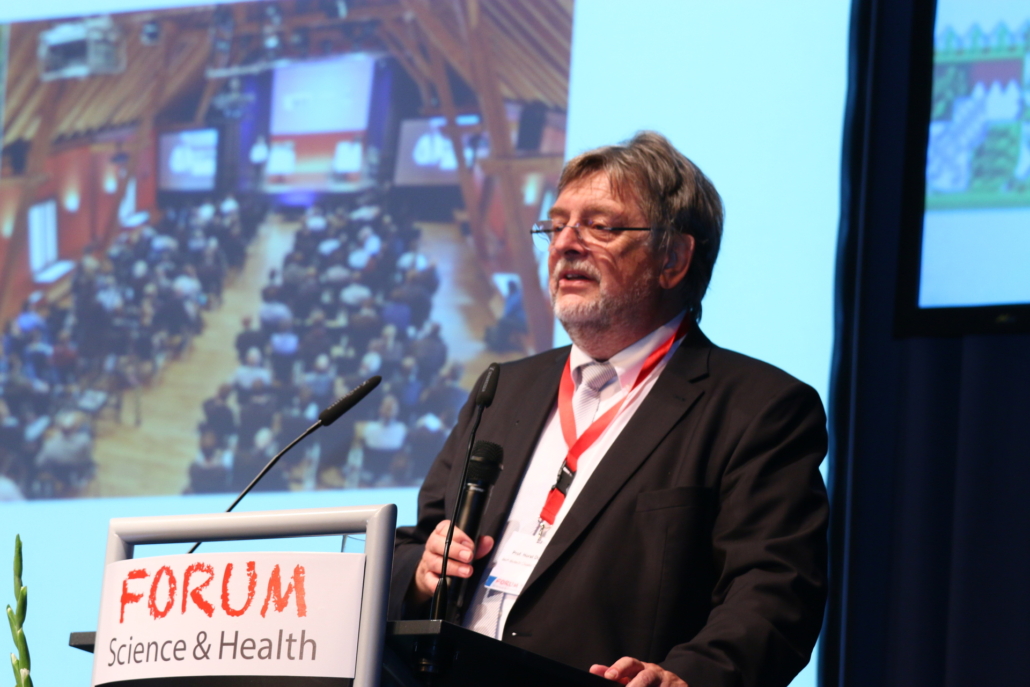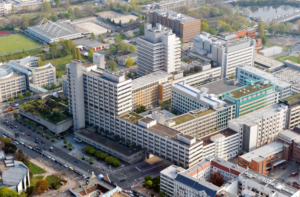
Bavaria and Germany push digital medicine
As part of a €5bn investment by 2025, the Free State of Bavaria will kick off two ambitious digital medicine projects next year, government officials said at the Forum Science & Health.
It’s not yet home and dry, said Dr. Peter Heinrich, Head of Division at Bavaria’s Ministry for Health and Care at Bio-M Biotech Cluster Development’s kick-off event on next-generation technologies and business cases, but under the new initiative Bayern Digital 2, we will launch a telemedicine project, that merges data from ongoing and existing population cohorts with patients with cardiovascular diseases to improve personalised care and therapy. Scientists at German Heart Centre, Helmholtz Centre Munich and Bio-M will participate in the project. With the second project, Bavaria pioneers a pilot platform for electronic health records (EMRs). According to Heinrich, the pilot is aimed at digitalising and pooling the medical records of 120.000 volunteers in a model region, Heinrich said. With the move, Bavaria positions itself as a European pioneer in the emerging field of digitalisation and analytics of medical data. Pooling of the still scattered and unstructured medical data in one place is aimed at improving patient care by preventing double work of physicians. In an extra space, patients will be able to upload data from their fitbits etc., said Heinrich. However, the few existing voluntary EMR platforms across the globe currently suffer from limited adoption by only 15% of patients. Experts, however, predict that adoption of the offerings digital medicine has to make will grow with the number of successful applications.
What computing of machine-readable data even can contribute to medicine today, was presented by keynote lecturer Bill Kassler at Forum Science & Health. In 2011, we entered the era of cognitive computing, said the Deputy Chief Health Officer at IBM Watson Health, that is, machines can read and understand text with an error rate below 4% and self-learning algorithms, which can recognise undiscovered patterns in real-world data, such as EMRs, images, behavioural data etc. A cloud-based system of IBM Watson with an interface to a patient’s cell phone can even today help type 2-diabetics to make lifestyle decisions based on their glycemic index. According to Kassler, you can make a photo of your meal and your mobile tells you how much fat, protein and carbohydrate it contains and what effect on your GI it will have. We have all technology in place but handling is still unconfortable. According to experts, 40% of type 2 diabetes cases worldwide could be prevented if pre-diabetics switched to a healthier lifestyle.
Another application proven to be successful in the US, will be implemented next year by Roche/FMI in Europe: Identifying mutation patterns by comparison of a patient’s individual DNA with FMI’s database of 125.000 mutation profiles in order to find the right drug for the patient. Scientists at Forum Health & Science however said, in the future it will become crucial for researchers to have access to such rich data resources. At Forum Health & Science, neurogeneticist Juliane Winkelmann (Helmholtz Centre Munich) said that it will become more important in the future to foster state-funded sequencing projects as companies such as her collaboration partner 23&me can’t give access to their databases as they are part of their business models.
On 10 July, German Research Minister Johanna Wanka announced that the German government exactly wants to provide such a national digital infrastructure for medical applications. Four networks were selected to receive €120m by 2021 to design pilot infrastructures that pool all relevant medical data from hospitals to give more personalised therapies a push. According to Wanka, there are a lot of medical data that are currently not used in a way as it would be possible for the benefit of the patient and health system. Starting in January 2018, the SMITH (Usage of EMRs), HiGHmed (secure data transfer & exchange), Difuture (harmonisation and integration of medical data formats), and Miracum (link up of data integration centres) consortia will build data integration centres with interfaces to link up standardised data from all German hospitals in a later step. The funding is part of Germany’s Mecical Informatics Initiative launched in 2015.
Forum Science & Health is a new event on breakthrough technologies, organised from the makers of the Munich biotech cluster, BIO-M Cluster Development. The meeting links up experts from different disciplines to discuss emerging technologies such as (this time) immunoncology, BIG data analytics, neurogenomics, RNA technologies besides current life sciences topics such as orphan diseases, biotech networks and innovative business models.


 Bayer AG
Bayer AG
 Picture from Ferdinand Stöhr on Unsplash
Picture from Ferdinand Stöhr on Unsplash